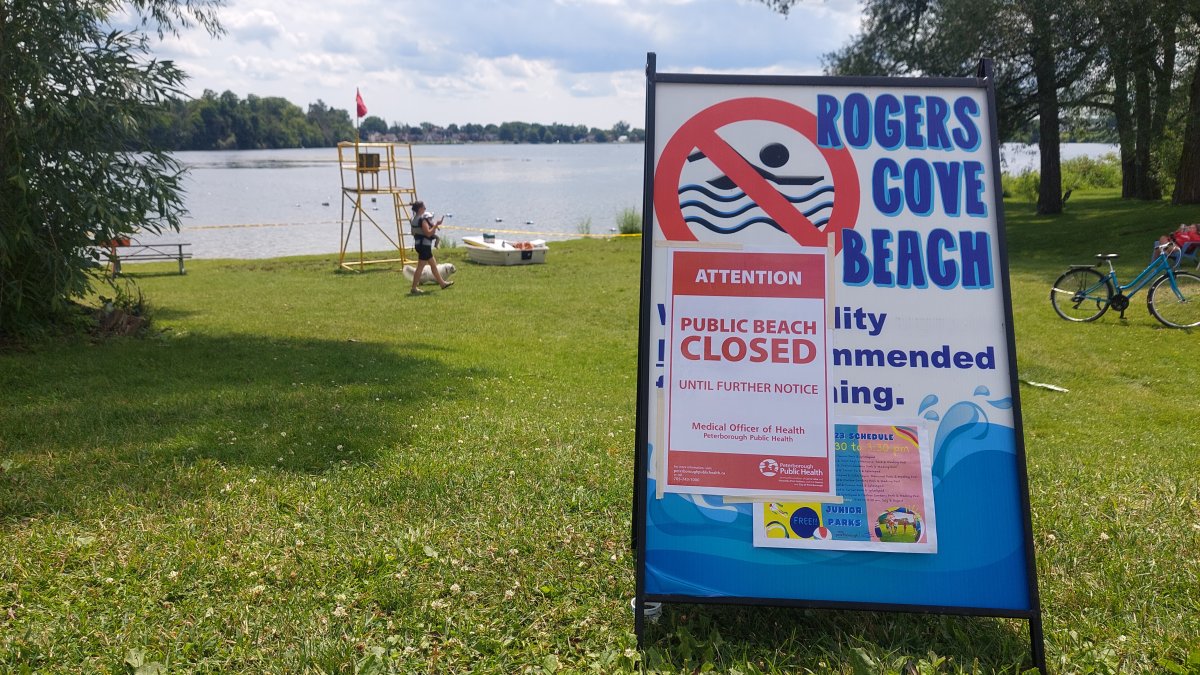Rogers Cove Beach in Peterborough, Ont., will be closed this weekend following the reappearance of blue-green algae blooms.

Peterborough Public Health had reported late Wednesday that the beach and nearby Beavermead Park beach were reopened after being closed since July 14 after blooms were found on Little Lake.
On July 21 the Ministry of Environment, Conservation and Parks sampled water at Rogers Cove and determined the water was 17 times above the acceptable level due to the harmful blue-green algae.
However, on Friday morning the health unit stated the blooms have reappeared at Rogers Cove. The beach is once again closed “until further notice.”
Water is sampled at both beaches each business day.
Beavermead Park remains open at this time with the water sampling deemed “safe,” the health unit reports.

Blue-green algae are a type of bacteria, called cyanobacteria. It’s known for quickly reproducing and collecting to form large, highly visible blooms throughout the water column, on the surface of water as a scum, or on the lake bottom as a mat. Some species of cyanobacteria can also release poisons, called cyanobacterial toxins, when the cells that make up the bloom rupture or die.
If in contact with a bloom, symptoms may include itchy, irritated eyes and skin, rash, headache, fever, diarrhea, abdominal pain, nausea, and vomiting. Pets and farm animals that consume contaminated water may experience sickness or death.
The health unit says currently there is no risk to the city’s water supply. Residents downstream of Little Lake are asked to monitor their water for the presence of the algae.
Beaches unsafe
In its regular beach status update, the health unit lists the following beaches as “unsafe” to due high levels of E.coli bacteria. Samples are conducted weekly and were last done on July 26 for the following sites deemed “unsafe”:
- Ennismore Waterfront Park (1053 Ennis Rd., Ennismore)
- Squirrel Creek Conservation Area (2445 Wallace Point Rd., in Otonabee-South Monaghan)
“Although a beach may be open or posted as safe, we recommend avoiding swimming for at least 48 hours after recent heavy rainfall or if you cannot see your feet when standing in the water,” the health unit states. “Water quality can change quickly each day and high bacterial counts may be harmful to your health.”


Comments